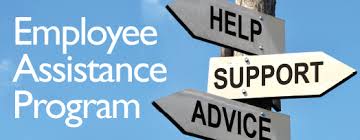Employee Assistance Programs (EAP)

What is an Employee Assistance Program?
An Employee Assistance Program (EAP) is an arrangement between an organisation and its employees to provide a variety of support programs for the employees. This can include assessment, short-term counselling, referrals, and on-site support for critical incidents.
EAP is a voluntary counselling service designed to assist employees to address various personal issues, either work-related or personal, in a confidential manner. EAP services are also often available to immediate family members.
In a nutshell, it is designed to enhance the psychological wellbeing of employees and provide intervention to address work and/or personal difficulties that may impact on work performance, productivity and attendance.
Is there a fee involved?
EAP services come at no cost to the employee or family member. Sessions are short-term and most employers will fund three to six sessions per employee.
What are some common work-related issues addressed through EAP?
EAP can assist with various work-related issues including organisational change, workplace stress, redundancy, career concerns, fear of job loss, job isolation, specific incident at work, job satisfaction, conflict with colleagues or management. Workplace bullying is one of the most common presenting problems.
What is workplace bullying?
Workplace bullying is defined as verbal, physical, social or psychological abuse by your employer, manager/supervisor, colleague, or group of people at your workplace. Workplace bullying can occur in any work setting and can happen to anyone whether you are a paid employee, volunteer, or placement student. In order for behaviour to be classed as ‘bullying’, it has to be repeated, i.e. it has occurred on more than one occasion.
Bullying in the workplace can involve:
- Repeated hurtful or derogatory comments which can include making fun of you and/or your work. This can happen privately, where there is no one else to witness the behaviour or in front of other staff.
- Excluding you from work-related activities.
- Playing mind games.
- Intimidation, which includes speaking to you in a way that makes you feel inferior.
- Placing unrealistic expectations on you such as giving you tasks which would be impossible to complete given the timeframe or resources.
- Withholding information from you which is necessary for you to complete your work.
- Sexual harassment including sexual comments or inappropriate touching.
- Physical abuse such as pushing, shoving or tripping.
- Inappropriate jokes or pranks which lead to you feeling ridiculed or embarrassed.
- Attacking or threatening you with weapons.
Workplace bullying can impact on an individual’s work. It can lead to reduced productivity, absenteeism, fear of losing your job, loss of confidence, feeling stressed and physical impacts such as insomnia. In addition, bullying can impact on an individual’s personal life including relationships, social interaction, and lead to mental health difficulties such as depression and anxiety.
It must be mentioned, that some situations within a workplace may seem unfair but are not bullying. It is acceptable for your employer to transfer, demote, performance manage, or let you go, provided they are acting reasonably and there is a legitimate reason for their decision.
What you can do.
- Find out if your organisation has a bullying policy and complaints procedure. Most companies will have information on the intranet or you can speak to Human Resources (HR) if you are not sure.
- Keep a log or diary of all incidents of bullying including details of what you did to address the issue.
- Get support from someone you trust or contact the union.
- Approach the bully (if you feel safe and confident to do so) and let them know that their behaviour is not acceptable.
- Raise the issue with a manager or HR.
How EAP can assist with addressing workplace bullying?
An EAP counselling service can assist by helping you to keep informed with regards to what behaviour constitutes bullying, provide you with strategies on how to handle the situations and procedures you can follow.
One of the most challenging things for individuals is to approach the bully and let them know that their behaviour is unwanted. Counselling can assist by empowering you to identify that there are steps you can take to stop this behaviour. You will be provided with assertiveness training (a communication style which focuses on standing up for yourself in a way that is respectful towards you and the other person involved) and tools to build your confidence.
Why use EAP?
EAP services are not only free for staff and immediate family members, but have been statistically proven to enhance employee’s productivity levels and reduce absenteeism from work. Research on the efficacy of EAP’s show that working with a Psychologist can improve emotional well-being (↑86.4%), physical health (↑24.8%), work-like balance (↑44.8%), workplace moral and motivation (↑49.5%) and productivity (↑24.0%), improve workplace relationships (↑27.3%), and reduce absenteeism (36% improvement).
How do I access EAP services?
EAP services can be accessed by speaking to your manager, HR department or finding the name of the EAP provider that your organisation is linked to. Once you have these details, you are able to contact the EAP provider and organise an appointment. EAP providers have psychology practices that they will refer you to in order to find a service that is easily accessible. All information is handled in a confidential manner, and your employer does not know that you have accessed these services, unless you choose to tell them.
If your organisation does not already have an EAP provider, visit our EAP page or give us a call on (03) 9809 5947.
 | This blog was written by Maria Kampantais, Psychologist at Your Mind Matters. Maria has a long history of working in Employment Services and has a strong understanding of the stressors staff can endure when working towards KPIs, deadlines, when they are overworked, or there is a workplace issue. We spend a lot of time at work, so its important that the time there is as enjoyable as possible. Maria works with us 4 days per week and has both evening and day session times. To learn more about Maria, click here. |
Other helpful links:
https://www.humanrights.gov.au/workplace-bullying-violence-harassment-and-bullying-fact-sheet
If you’d like to more about EAP statistics, head to http://www.davcorp.com.au/wpdata/files/23.pdf
